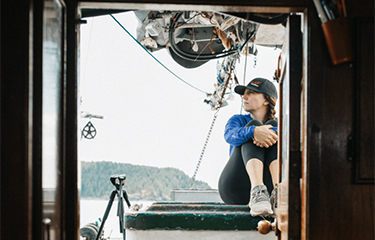Canadian government threatens British Columbia fishing closures with MPA push

Melissa and Joel Collier run West Coast Wild Scallops, a small family operation in Campbell River, British Columbia, on Canada’s Vancouver Island. The company sells directly to the public and small seafood markets and retailers, a community-supported fishery, and food distribution companies, and recently expanded to include wholesale.
But Collier said she is scared commercial fishing may disappear on Vancouver Island due to the Canadian government’s aspiration to create additional marine protected areas, some of which would encroach on local fishing grounds.
“Here on the B.C. coast, we [already] have many different conservation areas,” Collier said.
Collier referenced sponge reef areas where bottom-contact fishing is restricted and a rockfish conservation areas where most types of fishing are prohibited. But MPAs would create no-fish zones covering the entire northern British Columbia fleet’s fishing grounds, she said.
“We got this map with patches all over the place, and the majority of these patches were our primary fishing zones,” Collier said. “Then they came out with more details including management measures where each area had a specific type of conservation target they were aiming for. The result is huge spatial closures that will drastically impact the fishing industry.”
In the latest version of the proposal, the government removed the controversial management measures.
“We have no idea what they were trying to protect or what was going to be allowed, what's not going to be allowed. And that's kind of where we're sitting right now,” Collier said.
In response to the MPA proposals, local fishing communities formed a group called the marine planning team. Collier said the group has been seeking areas of compromise on the government’s priority zones for MPAs. According to Collier, the team devised an alternate plan that met or exceeded the conservation that the government outlined.
“The fishing fleet would still be there, there would still be an impact, but it wouldn't kill us. It wouldn't totally destroy our industry,” Collier said.
But she said the government has yet to acknowledge their efforts.
“They haven't taken any of the recommendations by the marine planning team, and they just keep plowing forward,” Collier said.
Startling news came from the Fifth International Marine Protected Areas Congress (IMPAC5) in Vancouver, Canada, in February 2023, when the Canadian government officially endorsed the marine protection network plan and announced an initial closure.
“One of the areas they closed is part of an area that we fish, and we had to completely adjust our fishing in accordance with that because we can't fish in the zone anymore,” Collier said.
Although the government promised to consider fishery research to better understand each marine zone before implementing MPAs in them, socioeconomic studies have not been performed, the validity of data cited by the government has been questioned, and fishing communities have not been effectively involved in the process, Collier said.
“Our marine planning team has done everything that they can within the proper channels of working with the government, the fishing associations, and everything,” Collier said. “Finally, we said, ‘We don't know what to do anymore.’”
There’s already been a reduction of shore services along the coast, as processing plants have closed due to a lack of fishing opportunities to support their businesses, suppliers no longer offer a variety of commercial gear and electronics, and harbor shower and bathroom facilities close due to vandalism and insufficient fishing to warrant operational costs, Collier said.
Collier warned B.C.’s southern coast will be the next to be affected.
“All I can do is hope that enough people get pissed off about it or scared about it that we can somehow put pressure on the government to fix it, change it, or adjust,” she said.
To offset an uncertain future, the Colliers plan to expand and diversify into other fisheries, though doing so is a financial strain. Melissa Collier said fishing is generally stressful, but the threat of closures takes it to another level. Even with Collier’s background as a marine biologist and her husband's experience in the petroleum engineering field, the thought of retraining to get back into those industries after years away is daunting. Plus, they don’t want to.
“This is exactly who I am. I live, eat, and breathe [fishing]. My entire life is based on the tides, the weather, everything. And if I don't have fishing, what will I do?” Collier said. “We love our lifestyle. We love fishing. We love being able to offer it to our kids. We love feeding the world. And the loss of multi-generational knowledge as well, to me, is terrifying. The amount of information, knowledge, and experience that has been passed down to my husband from his family … and that's going to be lost all over this coast.”
Reporting by Megan Waldrep
Photo courtesy of WC Wild Scallops






Share